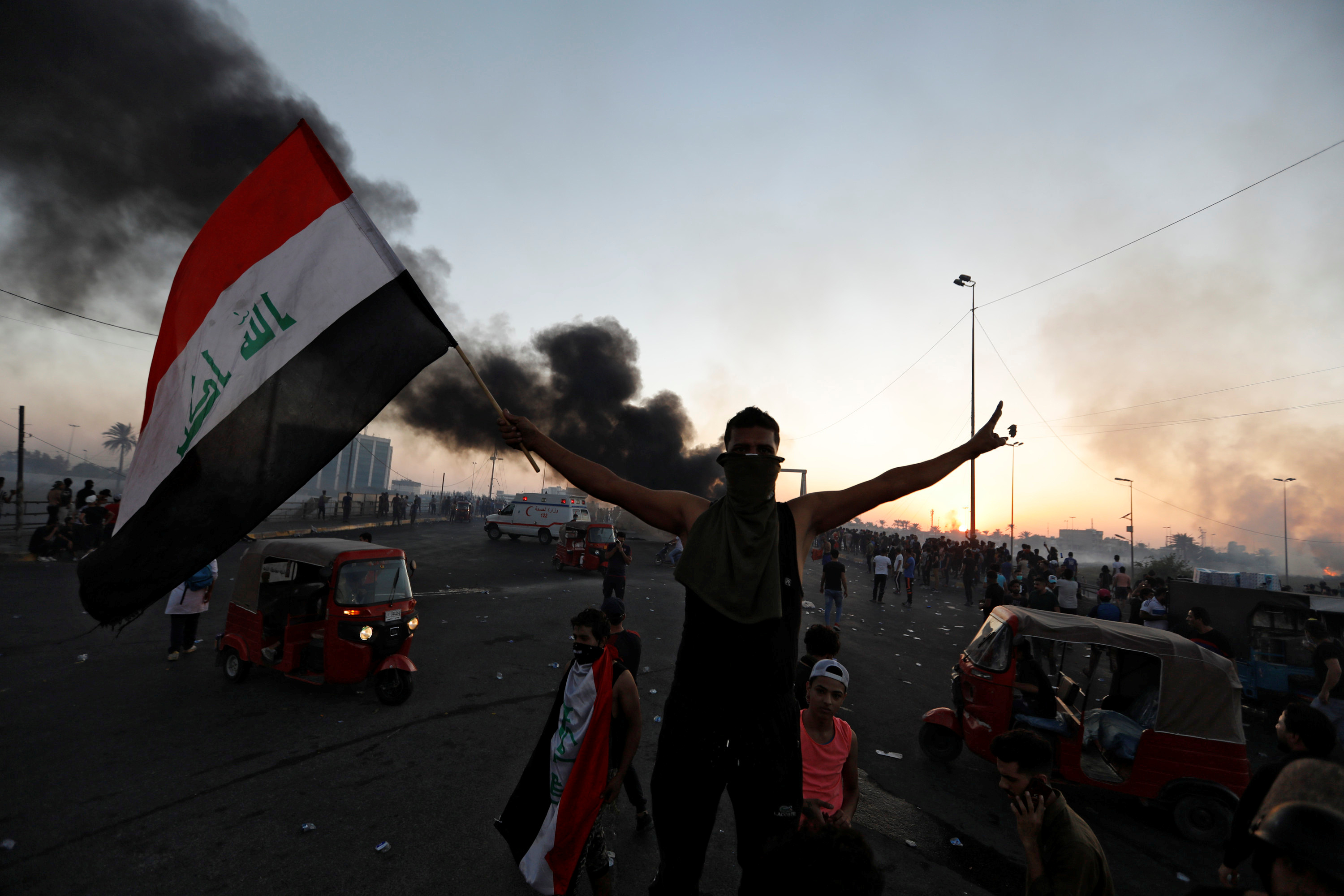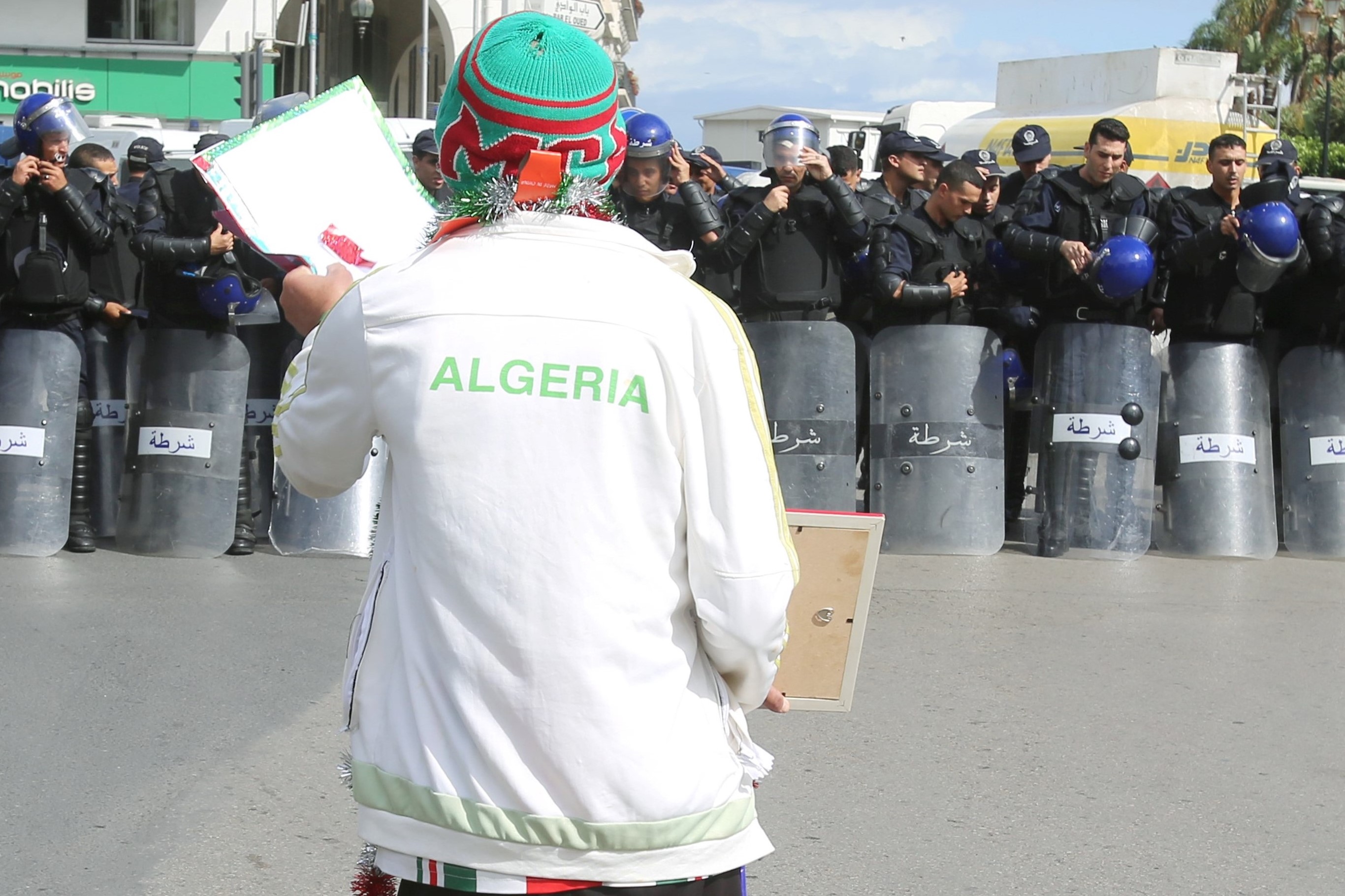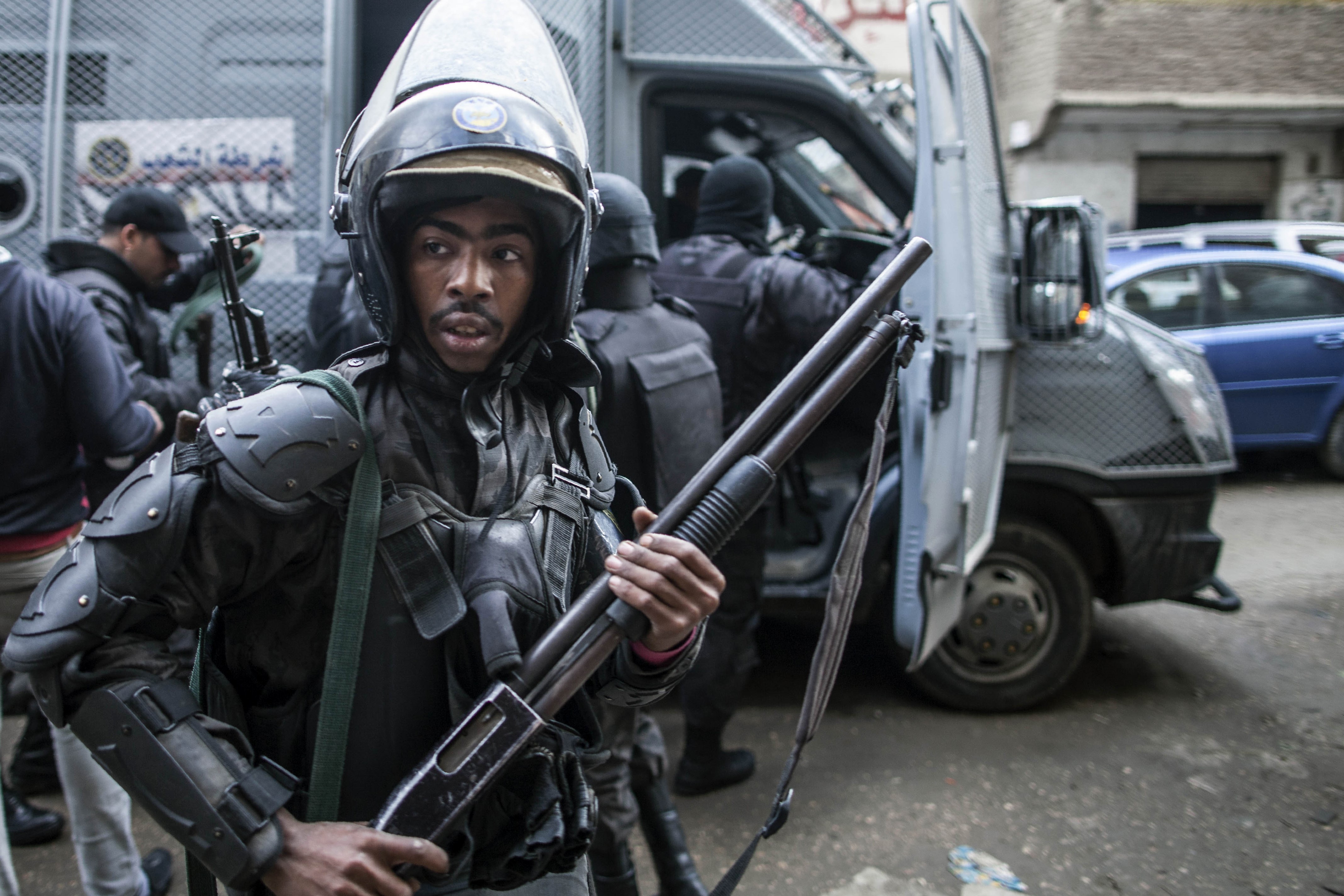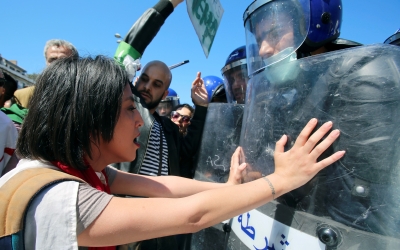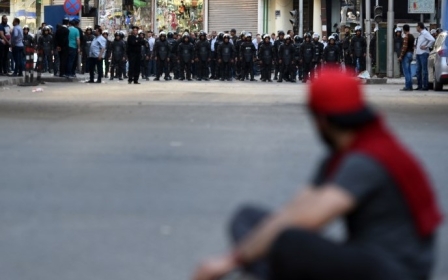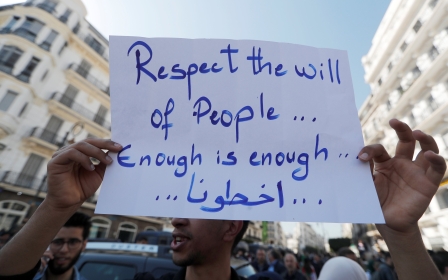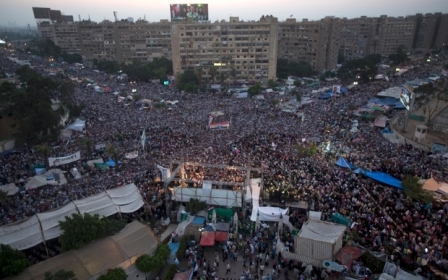From Lebanon to Iraq, the Arab Spring never ended, it just gets bigger
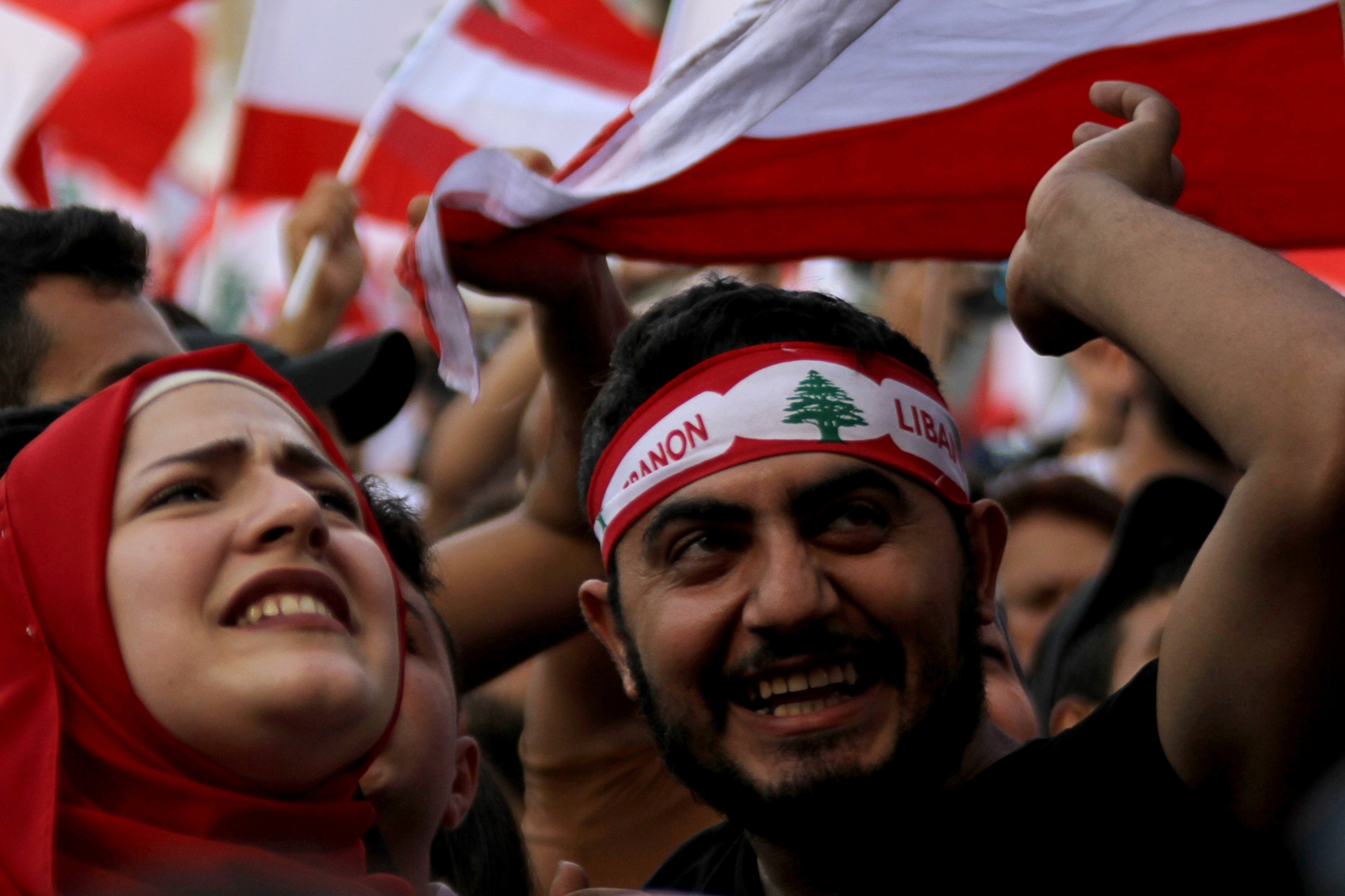
In a column from last year I wrote that far from being over, or having been replaced by an "Arab Winter" with no end in sight, as pretty much all commentators and scholars were claiming, the Arab Spring had actually never ended.
Its ashes had been quickly rekindled all over the Middle East and North Africa (MENA), and it was destined to continue, albeit in different, less spectacular, more localised and sporadic forms, because the root causes of the 2011 uprisings had not been addressed and the situation was either the same or worse.
A volatile situation
The situation all over MENA this past year seems to confirm those notions. Of course, the situation remains incredibly volatile and uncertain for all parties involved. No one can predict for sure where the Middle East will be in 10 years from now, anymore than anyone, including the best scholars on the Middle East anticipated in any way the dramatic, breathtaking years since 2011.
The regimes have become even more brutal, repressive, and terroristic than they already were before the Arab Spring
Caution and humility thus remain the rule. But one thing is certain: characterised by the massive economic and political disenfranchisement of the majority of the Arab populations, by equally massive and systemic corruption from Morocco and Iraq to Egypt and Saudi Arabia, regimes that are desperate to maintain their grip on power at all costs have become even more brutal, repressive, and terroristic than they already were before the Arab Spring.
The exception - of course - is the brave and admirable Tunisia, while Assad’s Syria and Sisi’s Egypt are the worst examples at the other end of the spectrum.
The current situation all over MENA and in each of its countries is simply unsustainable in the medium-to-long term.
Such regimes, and the elites that prop them up, may be able to remain in power for many years, even decades. But sooner or later they will either have to reform and democratise - profoundly and extensively so, at all levels - or collapse like several did in 2011.
There will be no durable status quo because that status quo is just not viable and liveable for most of their own populations. And it is becoming increasingly less so.
Not a second Arab Spring
It is thus logical that the Arab Spring never really ended. As we have seen for quite a while now how the fresh new waves of riots, unrest, mass protests and genuine uprisings in the past two years have once again relentlessly shaken and scared the ruling powers in countries as apparently different as Algeria, Iraq, Jordan, Morocco, Lebanon, Sudan, Iran and Palestine.
Contrary to the lame reporting from the majority of Western media outlets who insist on presenting those events as being entirely or mostly about economic bread-and-butter issues to better deny their essential political dimension, people across MENA are rising up - in large numbers - not just because of unemployment and the hike in food prices, but also - and often first of all - because they want, need, crave, and deserve recognition from their state.
Protests also took place in Egypt last month, despite the heavy hand of the most brutally repressive, violent and totalitarian regime in all of MENA, second only to Syria where the anti-regime opposition and armed rebellion also continue despite repression on a truly genocidal scale.
They want a place in their own country, which they so often don’t have or can’t find, hence the massive brain drain from countries like Morocco and Algeria, where statistics show that more than half of the youth would emigrate to countries like France if they could.
People seek an end to a lifetime of humiliations often at the hands of their own ruling powers; they want human and social dignity, and political and civil rights. To sum it up, besides jobs and cheaper rice, oil and bread: freedom, equality, opportunity and justice.
It is not abusive or exaggerated to say that the demands of the rioting "masses" in MENA are the exact same as those of an equally historic Western social movement like the Yellow Vests in France under the increasingly autocratic and brutal rule of Emmanuel Macron, or "Jupiter", his claimed role model.
Despite the obviously vast differences that separates life in Paris from life in Baghdad, in essence and substance, all those people are putting their bodies on the line for the exact same reasons.
Tahrir Square or Place de l’Etoile reflect the same ongoing struggles carried out for the same fundamental reasons.
State terrorism
Faced with their populations' ongoing defiance and refusal to accept the status quo and quietly go back home after the 2011 party, the Arab regimes -with the exception of Tunisia - have offered the same response, clearly the one and only they have: repression, mass murder of protesters, violence at the hands of state “security” forces, censorship of free media, mass arrests, and the politics of fear.
In other words, state terrorism.
Amazingly, this systematic and never-ending orgy of state violence to quell perfectly legitimate and mostly or totally peaceful protests has not elicited a single vigorous reaction on the part of our Western governments, whose shameful silence, passivity, and continuing unconditional support to Arab terrorist regimes has always been and remain a major enabling factor.
President Macron, whose rule was seriously shaken during the Yellow Vests mass protests that lasted from November 2018 to March 2019, even borrowed several pages from his Arab allies’ fascist textbooks, unleashing terrible police violence against unarmed protesters - his own people - letting his police maim and mutilate unarmed civilians with total impunity.
At one point - and to our knowledge this shocking but revealing development was never reported in any English-language media - the military governor of Paris, General Bruno Leray, even declared in no uncertain terms, on the major state channel France Info, that the military forces to be deployed in the streets of Paris from now on had received official permission to open fire on the French crowd with live ammunition in case of necessity!
In other words, France itself, still presented in every foreign media as a paragon of democracy, has now for a fact become a country where the highest military and political authorities can casually inform you on national state media that if you join a peaceful protest, you may get injured and even killed by your own police or military.
This itself would justify renaming those nations "post-democracies".
Western hypocrisy
In a supreme example of hypocrisy and double standards, France and Germany have announced they are stopping arms sales to Turkey because of President Erdogan’s military operation in Northern Syria.
Apparently, for Macron and Angela Merkel, only some countries - their own, evidently - have the right to defend their territorial integrity by going after terrorist organisations while other countries can’t.
In addition, those European states, like France, are certainly not interrupting arms sales to brutal despots and mass murderers like Abdel Fattah el-Sisi, Saudi Crown Prince Mohammed bin Salman, and Israeli Prime Minister Netanyahu, who can thus quietly continue to assassinate opponents or mere critics, bomb civilian populations from Yemen to Gaza, and squelch in blood their domestic pro-democracy demonstrations with the blessing, passive complicity, or - most of the time - active political, diplomatic, financial and military support of those Western governments.
All this can once again be verified with this fresh wave of mass protests across MENA, followed by the inevitable hail of bullets, police sticks and water cannons - for the luckier ones - from their own governments.
MENA's 'democratic deficit'
The lack of genuinely democratic, pluralistic and egalitarian states in that part of the world is a vexing problem that has baffled analysts for a long time. Some have been advancing an explanation in terms of the "backwardness" of a religion (Islam), culture (“Arab” culture) and mindsets still steeped in their mediaeval roots and origins.
The West's shameful silence, passivity, and continuing unconditional support for Arab regimes has always been and remains a major enabling factor
Others understand the democratic backwardness of those countries as correlated to economic and social structures - including the famous "oil curse" - rather than religion and culture, though evidently the latter can influence and shape the former to various degrees.
In the West, such explanations, which play in the hands of both anti-Arab racism and Islamophobia, have for a long time been popular and anyone peddling such explanations is guaranteed media fame and official recognition, as well as more concrete benefits in the forms of paid interviews and newspaper columns, lucrative book deals, job offers in universities and think tanks, and/or official governmental positions and appointments.
Ayaan Hirsi Ali is only the most famous and the first who truly turned Islamophobic discourse into a lucrative career. Everybody, though, agrees that autocratic regimes and authoritarian statecraft are a major factor, possibly the main one characterising the regional state system.
Already in the 17th-century, important modernist Islamic thinkers such as the jurist, teacher and chief minister of the Ottoman empire Khayr al-Din al-Ramli were blaming autocracy as the major cause for the Muslim world's “backwardness".
Today, precious few of these largely exclusionary, sectarian and brutally repressive regimes and states grant their own populations a rightful place in their own political life.
Two root causes for the lack of democracy stand out: authoritarian Arab regimes and the Western powers who back them
The root causes
First, for centuries now, the constant interference, interventionism and forced projection of Western power in that part of the world, in many diverse forms including direct colonialism, military invasions and occupations, regime change and coups d’état, puppet states, theft (legal or not) of natural riches (oil) and land.
Two root causes for the lack of democracy stand out: authoritarian Arab regimes and the Western powers who back them
Also, the cynical instrumentalisation of those countries for proxy wars and great power rivalry in the Cold War and its aftermath has been waged in the Middle East, dismembering, “balkanising” and partitioning existing functional political units - the Ottoman Empire after World War One - using minorities against their own states to weaken the latter and prevent the emergence of strong, non-aligned nationalist or pan-nationalist Arab powers, see the case of the Kurds, and so on.
Worse, each time those countries and populations start a genuine grassroots democratisation movement, Western powers either remain on the sidelines and quietly watch them be repressed by the West's Arab state allies - often approvingly so and usually with weapons they themselves sold them - or they do the job themselves (eg Iran 1953, against Mossadegh).
Then, in the aftermath, they hypocritically lament: "Why, oh why isn’t the ‘Arab Muslim world’ more democratic?”
Second, state authoritarianism indeed.
The long and bloody journey
But these two factors cannot be isolated from one another. They are profoundly intertwined, given that most authoritarian Arab states from Morocco to Saudi Arabia remain powerfully propped up, sustained, and sometimes directly created by the West itself (such as the regime of the Pahlavi dynasty, the former Iraqi prime minister Nouri al-Maliki's regime in the post-2003 US invasion).
The truth is that the MENA populations, which are as democratically minded as anyone else - as the Arab Spring itself proves, have never been and still are not allowed to govern themselves as independent and sovereign polities.
That fact is the root of the region’s democratic deficit, not some putative, indelible trait to do with “Islam” or the "backward Arab mind" that reeks of bigotry.
This fresh wave of riots and revolts across the region is also showing that in their long, bloody journey towards freedom, independence, sovereignty, and justice, the two major counter-revolutionary and reactionary forces that will stand in the way of those populations, as they always have in their history, are their own Arab regimes and the Western powers that more often than not back them.
The views expressed in this article belong to the author and do not necessarily reflect the editorial policy of Middle East Eye.
Middle East Eye propose une couverture et une analyse indépendantes et incomparables du Moyen-Orient, de l’Afrique du Nord et d’autres régions du monde. Pour en savoir plus sur la reprise de ce contenu et les frais qui s’appliquent, veuillez remplir ce formulaire [en anglais]. Pour en savoir plus sur MEE, cliquez ici [en anglais].



